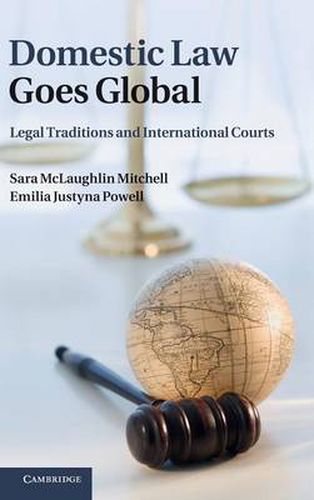Readings Newsletter
Become a Readings Member to make your shopping experience even easier.
Sign in or sign up for free!
You’re not far away from qualifying for FREE standard shipping within Australia
You’ve qualified for FREE standard shipping within Australia
The cart is loading…






International courts have proliferated in the international system, with over one hundred judicial or quasi-judicial bodies in existence today. This book develops a rational legal design theory of international adjudication in order to explain the variation in state support for international courts. Initial negotiators of new courts, ‘originators’, design international courts in ways that are politically and legally optimal. States joining existing international courts, ‘joiners’, look to the legal rules and procedures to assess the courts’ ability to be capable, fair and unbiased. The authors demonstrate that the characteristics of civil law, common law and Islamic law influence states’ acceptance of the jurisdiction of international courts, the durability of states’ commitments to international courts, and the design of states’ commitments to the courts. Furthermore, states strike cooperative agreements most effectively in the shadow of an international court that operates according to familiar legal principles and rules.
$9.00 standard shipping within Australia
FREE standard shipping within Australia for orders over $100.00
Express & International shipping calculated at checkout
International courts have proliferated in the international system, with over one hundred judicial or quasi-judicial bodies in existence today. This book develops a rational legal design theory of international adjudication in order to explain the variation in state support for international courts. Initial negotiators of new courts, ‘originators’, design international courts in ways that are politically and legally optimal. States joining existing international courts, ‘joiners’, look to the legal rules and procedures to assess the courts’ ability to be capable, fair and unbiased. The authors demonstrate that the characteristics of civil law, common law and Islamic law influence states’ acceptance of the jurisdiction of international courts, the durability of states’ commitments to international courts, and the design of states’ commitments to the courts. Furthermore, states strike cooperative agreements most effectively in the shadow of an international court that operates according to familiar legal principles and rules.